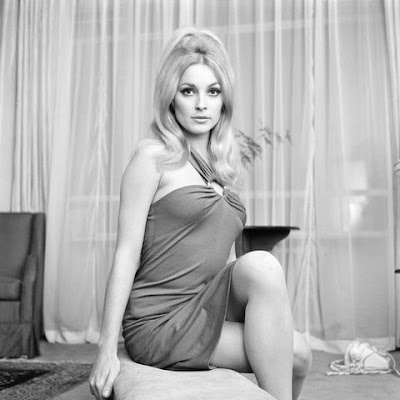Norman Bates and Leatherface are based on real-life killer, Ed Gein, but that doesn’t mean I'm cool with Gein's dreadful deeds. I do, however, understand (accept) how Gein influenced the traits of a couple fictional characters, who if the truth be known, possess more differences than similarities to their inspiration.
In a similar way, I despise Charles Manson and his “family” because they're the genuine, heinous deal. When I spot some out-of-the-loop kid sporting Manson's mangy scowl on a t-shirt, it enrages me. I see true evil exalted and not some conceptualized, emblematic entity who just so happens to be evil or criminally crazy: a character like the Joker, that is. Dig?
Now this leads me to Quentin Tarantino's epic, “Once Upon a Time...in Hollywood”, a film I should have caught at the theater, but due to time constraints, experienced late in the going via disc.
Tarantino's epic grazes upon gruesome, true-crime events, but in the writer/director's not-without-controversy account, significant details are altered. Sharon Tate (SPOILER) dodges her death through a justice-served climax. This artistic twist appeals to me. As such, the Manson aspects are easier to swallow. Manson and his Family aren't celebrated in Tarantino's tale; Tate is (in addition to several authentic and fabricated personalities).
Tarantino's epic grazes upon gruesome, true-crime events, but in the writer/director's not-without-controversy account, significant details are altered. Sharon Tate (SPOILER) dodges her death through a justice-served climax. This artistic twist appeals to me. As such, the Manson aspects are easier to swallow. Manson and his Family aren't celebrated in Tarantino's tale; Tate is (in addition to several authentic and fabricated personalities).
Why would my acceptance of any such embellishment be unacceptable? It comes down to dramatic license, right? That's why Tarantino rearranged the historic variables. The same no doubt can be said of Robert Bloch, Joseph Stefano, Alfred Hitchcock, Kim Henkle and Tobe Hooper, not to mention anyone who's ever essayed speculative scenarios on the Zodiac Killer and Jack the Ripper. (And that whole Dexter Morgan phenomenon is yet another fascinating spin, but that's another topic for another time.)
I wish Sharon Tate hadn't died the horrible way she had. The same goes for the Manson Family's other victims, which include Tate's unborn child. I wish that the godforsaken Family hadn't gained rebellious respect among certain callous quarters. A story that stomps on the fiends' blasphemous legacy pleases me, even if it presents examples of brutality to bracket its point, as do "Psycho" and "The Texas Chainsaw Massacre".
I wish Sharon Tate hadn't died the horrible way she had. The same goes for the Manson Family's other victims, which include Tate's unborn child. I wish that the godforsaken Family hadn't gained rebellious respect among certain callous quarters. A story that stomps on the fiends' blasphemous legacy pleases me, even if it presents examples of brutality to bracket its point, as do "Psycho" and "The Texas Chainsaw Massacre".









No comments:
Post a Comment